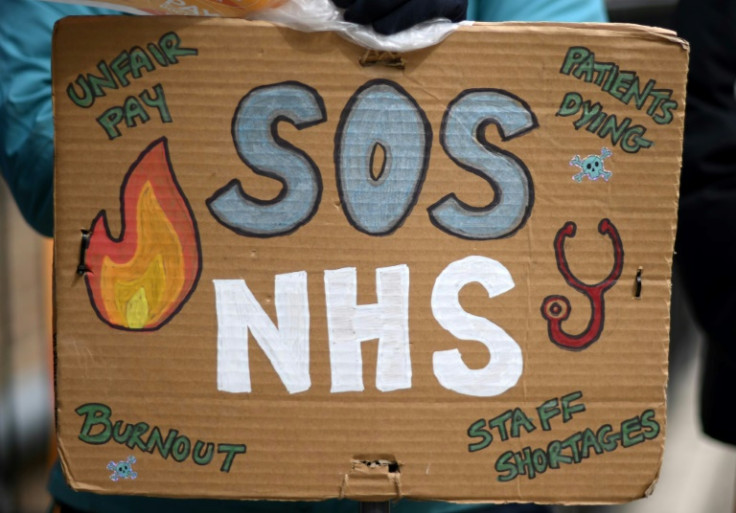Government Denies NHS Request for £1 Billion Bailout Amid Strikes
NHS England will announce on Wednesday an allocation of £800 million to assist health service trusts in addressing the financial challenges brought about by industrial action and preparing for the upcoming winter season.

In a disappointing turn of events, the UK government has declined the NHS's urgent plea for a £1 billion bailout to address the escalating costs associated with recent strikes that have severely disrupted healthcare services throughout the year.
On Wednesday, NHS England will announce that it is allocating £800 million to health service trusts to help cover the financial burdens incurred due to industrial action and to prepare for the upcoming winter season.
Regrettably, none of the £800 million represents fresh funding from either the Treasury or the Department of Health and Social Care. This development comes as a significant setback for NHS leaders, who had expected that their extensive discussions with government officials would result in the NHS receiving a much-needed infusion of at least £1 billion in entirely new funding.
This decision also proves to be a challenge for Steve Barclay, the Secretary of State for Health, who had been advocating for the Treasury to provide the £1 billion requested by NHS administrators to address the additional expenses incurred during the strikes, such as covering for staff on strike days.
Out of the £800 million announced, £600 million has been reallocated from NHS England's funds originally intended for various improvement initiatives, while the remaining £200 million was previously announced by Barclay in September to assist the NHS in navigating its traditional winter crisis.
Within the NHS, there had been some optimism that Jeremy Hunt, the Chancellor of the Exchequer, would be sympathetic to the request for in-year financial support. This optimism was based on Hunt's in-depth understanding of the pressures faced by the NHS during his six-year tenure as Secretary of State for Health from 2012 to 2018.
Now, both Jeremy Hunt and Rishi Sunak may face criticism for failing to allocate the much-needed funds to the NHS, diverting it towards potential tax cuts in the lead-up to the upcoming general election.
It is worth noting that the government is believed to have a surplus of £13 billion to £15 billion in "fiscal headroom," which represents money that can be allocated at its discretion before the election.
A senior figure within the NHS said: "Any Tory MPs might not view allocating an extra £1 billion to the NHS as a wise use of this money, especially given the perception that the NHS has unlimited financial resources. Some MPs may prefer Hunt to announce personal tax cuts instead."
NHS England is set to distribute the £800 million to its 42 integrated care systems (ICSes), which are regional groupings of trusts. Many of these ICSes are currently on track to end the 2023/24 financial year in a state of financial deficit, with some potentially facing an overspend of over £100 million. The rising costs of medications have further added to their financial burdens, on top of the expenses incurred due to strikes.
Julian Kelly, the Deputy Chief Executive and Finance Chief of NHS England, emphasised during a board meeting on October 5th that staff walkouts had already cost the NHS £1.1 billion by the end of July. Consequently, the NHS is in dire need of government support to cover these substantial costs.
In a briefing to the board, Kelly highlighted: "ICSes' financial positions continue to be affected by the ongoing industrial action, resulting in additional expenditures and hampering efficiency delivery.
"Without further support to cover the costs of industrial action, there is a significant risk that many systems will exceed their budget this year. We have estimated a cost impact of -£550 million by the end of July and have identified a loss of activity, such as cancelled operations, valued at a further -£500 million."
Matthew Taylor, the Chief Executive of the NHS Confederation, which represents healthcare trusts, shed light on the NHS's expectations. He stated that trusts urgently required the unforeseen £1 billion gap in their finances to be addressed without delay.
Taylor also warned of potential service cuts if the funds were not provided, emphasising the need for the government to clarify how they intended to adjust service expectations based on the available resources.
© Copyright IBTimes 2025. All rights reserved.






















